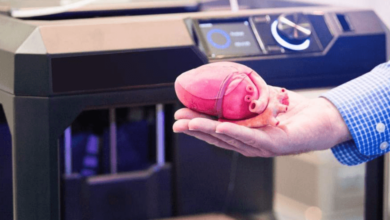How 5G Will Revolutionize the Internet of Things (IoT)

The advent of 5G technology marks a pivotal shift in the landscape of the Internet of Things (IoT). Its high-speed capabilities and minimal latency will facilitate seamless communication among devices, enhancing connectivity in various sectors. This transformation promises to optimize processes in industries and improve urban management in smart cities. As opportunities for innovation expand, the implications for healthcare and industrial efficiency become increasingly significant. What challenges and opportunities lie ahead in this evolving ecosystem?
Enhanced Connectivity for Smart Cities
A significant advancement in urban infrastructure is the integration of 5G technology, which plays a crucial role in enhancing connectivity for smart cities.
This technology underpins smart infrastructure, facilitating seamless communication between devices and systems.
Consequently, urban mobility improves as traffic management, public transportation, and shared mobility services become more efficient.
Such advancements promote accessibility and freedom, empowering citizens with greater control over their urban experiences.
See also: How 3D Printing Is Changing the Future of Medicine
Transforming Healthcare With Real-Time Data
The advancements in 5G technology not only enhance connectivity in urban environments but also revolutionize the healthcare sector by enabling real-time data exchange.
This capability facilitates effective remote monitoring of patients, leading to improved patient management.
With instant access to vital health information, healthcare providers can make informed decisions, ensuring timely interventions and fostering a more responsive, patient-centered approach to care.
Optimizing Industrial Processes Through Iot Integration
While many industries grapple with inefficiencies, the integration of IoT technology within industrial processes presents a transformative solution.
By enabling predictive maintenance, companies can proactively address equipment failures, reducing downtime and enhancing productivity.
Furthermore, IoT optimizes the supply chain through real-time data analytics, ensuring seamless coordination among suppliers and manufacturers.
This convergence fosters flexibility, efficiency, and ultimately, greater operational freedom.
Conclusion
In conclusion, the advent of 5G technology is poised to fundamentally transform the Internet of Things, offering enhanced connectivity that empowers smart cities, revolutionizes healthcare, and optimizes industrial processes. As industries embrace these advancements, one must consider: how will our lives change when every device seamlessly communicates in real-time? The potential for innovation is boundless, promising a future where efficiency and responsiveness redefine our interactions with technology and the world around us.




